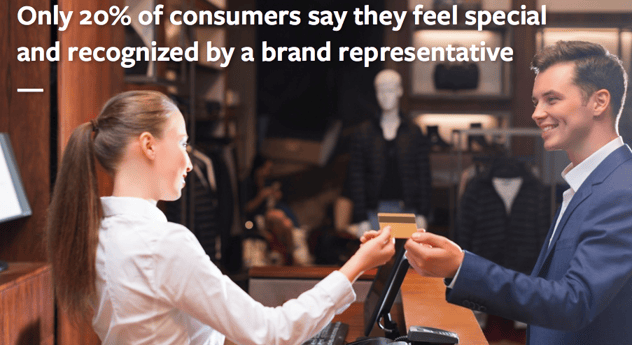Morana Bakula
Why Luxury Brands Need To Focus On The Human Customer Experience

Yes, brands are dazzling customers with virtual and augmented reality, interactive screens and AI-powered everything, yet this provides an opportunity for brands to differentiate through the emotional value customers gain from their entire purchase experience.
It means brands need to get better at being emotional. Customers want “emotional luxury” derived from feeling recognized, special, and known; yet, only 20% of consumers say they feel special and recognized by a brand representative. This is a massive, untapped opportunity for brands to better engage with consumers.
As brands increase access to luxury-like experiences (think how Uber democratized the personal chauffeur, or how most technology once available only in luxury cars is now available across all segments), premium brands cannot differentiate on technology alone to acquire and retain customers. That requires developing brand representatives whose service orientation is rooted in emotional intelligence.
The relationship between luxury-like brand experiences and emotional intelligence is especially pronounced for consumers who are new entrants to luxury, and expect more for the dollars they’re spending.
The aspirational shoppers, who are just starting to play in the luxury segment and likely still need to justify the price, need to derive value not solely from the product, but also from the feelings created throughout the entire purchasing experience.
These shoppers want a human customer experience—including feeling recognized, special, and known in the moment. It is not unlike the cultural code we associate with being a “regular” customer at a smaller shop scaled for personal interactions. As such, marketers everywhere are trying to decode personalization based on previous purchase behavior, demographic data and a myriad of telltale metrics.
However, a luxury experience is something tailored at an emotional level—and this is still uniquely a human capability. Customers want brands to “know me and read me in the moment, and recognize that in this moment, I want to be tended to and lavished with attention or I would rather be left alone.” Ultimately, brands need to realize that true differentiation in luxury is the mental escape it provides; the mini-vacation, the reprieve from the ordinary.
For brands with hundreds or thousands of staff, this is done through teaching empathy, anticipation, and contextual listening—and then putting all that is known about the customer into the hands of the representative. And that’s where data and technology can come to enable the experience.
Emotional customer experiences at scale are facilitated by putting data and insights into the hands of employees. Employees with emotional intelligence can use that data to create differentiating experiences for the customer in the very moment of interaction.

How does this all benefit brands? Creating positive emotions can result in lasting connections between brands and consumers. When brand representatives make loyalty program members feel special or recognized, it results in 2.7 times increased satisfaction and loyalty to the brand, according to the Bond Brand Loyalty Report.
Brands can also use the in-store experience with a brand representative to drive communications, offers and purchases in other channels. According to Foresee, customers are 75% more likely to make a purchase from a retailer in another channel after a positive in-store experience.
While 2017 and beyond will undoubtedly bring many “shiny new things” for brands, the human customer experience we crave as customers will increasingly be those unique situations that provide a sense of belonging, connection, authenticity, and relatedness. In light of this, brands that lead will be those that inspire and enable their people to deliver on these needs.
Republished as a blog from a recent Chief Marketer Magazine article.